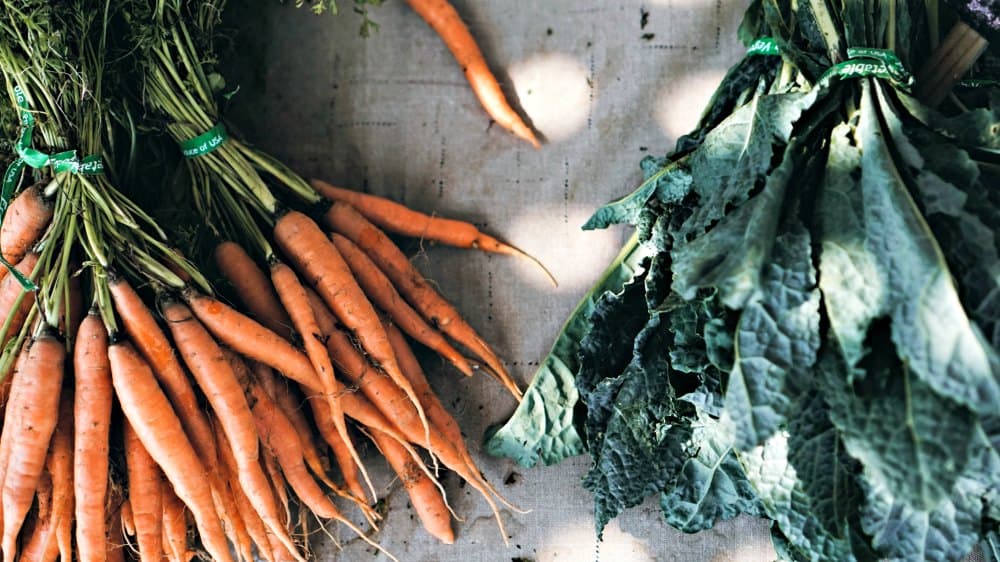Ask any two people, “What is organic?” and you’ll get two different definitions. An organic definition is difficult because the term by itself doesn’t mean all that much. Let’s take a look at what is organic, what does organic mean, and how growing organic vegetables impacts your gardening and lifestyle choices.

What Is Organic?
I am an organic gardener and have always been one. My father, one the other hand, never met a chemical he didn’t love. He’d spray malathion religiously on his chrysanthemums, tomatoes, green beans, you name it. Whiteflies were his enemy and his nemesis.
I’m the polar opposite. A few whiteflies on the green beans? So what, I’m still getting plenty of beans, so they’re welcome to the leaves. Squash beetles and potato beetles are the only two real culprits in my garden and both can be controlled by hand-removal and simple organic gardening practices.
So what exactly is organic gardening? When I write about organic gardening practices, what is my definition of organic?
Definition of Organic Gardening
The North Carolina Cooperative Extension defines organic gardening as follows:
A basic definition of organic gardening is gardening without synthetic fertilizers and pesticides. But organic gardening is much more than simply replacing manmade chemicals with those derived from natural sources. It is a philosophy of gardening that supports the health of the whole system.
Breaking down this definition into its parts, we derive the following conclusions about organic gardening to answer the question of what is organic:
- Organic gardening is gardening without synthetic fertilizers or pesticides
- Organic gardens depend upon the health and the natural interworkings of the garden ecosystem to support overall plant health.
- Good soil is the foundation of a good garden.
Avoiding Synthetic Fertilizers and Pesticides
Good organic gardening practices involve much more than exchanging my dad’s jar of malathion for an organic insecticide. Many people assume that if they simply swap their container of Round-Up weed killer for homemade weed killer they’re using organic gardening practices. That’s not organic gardening at all. That’s just switching products.
Organic gardening utilizes the principle of balance and harmony for the entire ecosystem to avoid problems in the first place. If the garden’s ecosystem is balanced, any harmful insects that arrive will be kept in check by their natural predators. You won’t need to reach for a container of “organic” insecticide because nature providers her own method of handling bad bugs.
What About Organic Food?
The food that you buy at the grocery store marked “organic” bears the organic symbols because it meets specific USDA certification requirements. It is not a sign that food is healthier or better for you.
The organic label also does not mean that no chemicals were used on the food you are eating. Organic certification includes the legitimate use of certain products as specified by the USDA. Some of these substances are no better or worse than similar products used to control insects or bacteria on conventionally grown fruit and vegetables.
Grow Your Own
The best way that I know to ask and answer the question, “What is organic?” is to grow my own. When I pick apples off of the trees in my yard, I know what has been sprayed (nothing) and what has been used to fertilize them (mushroom compost).
Although I do have some crop losses, such as squash to squash beetles, the benefits far outweigh the drawbacks. I can dig into a large salad and know that the lettuce wasn’t treated with pesticides; my tomatoes are less than 10 minutes from the vine, not 10 days, and treated only with sun, warmth, and whatever my garden’s natural environment gives to it.
I don’t necessarily think that using organic products, conventional products, or a combination of products in the garden is bad. Just don’t delude yourself into thinking that if you choose only organic products you are living healthy or deriving greater benefit from the products you use or ingest.
Organic living, like organic gardening, is a holistic approach. It’s not a one-size fits all approach. You need to pick and choose what works for you, your garden, and your circumstances while understanding the impact that your choices have on the environment and on your personal needs. Then you can pick organic or conventional gardening practices, produces, and methods that work best for you.